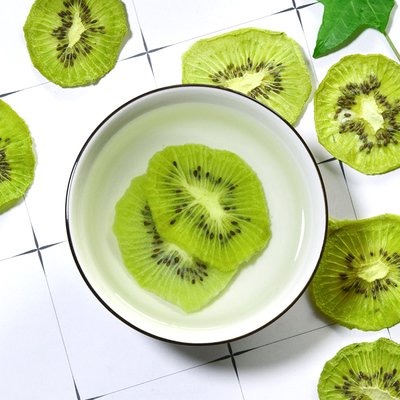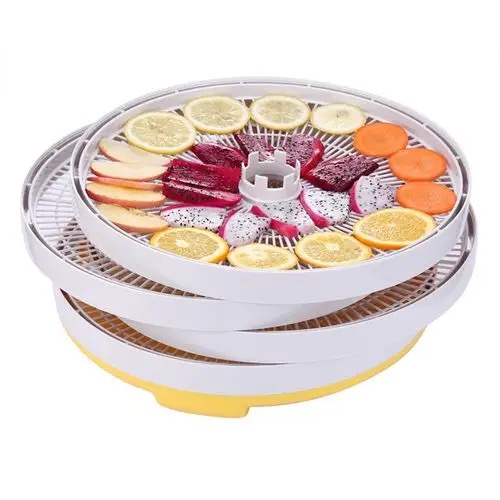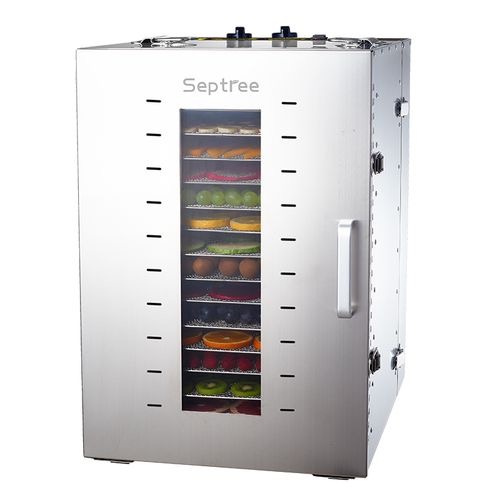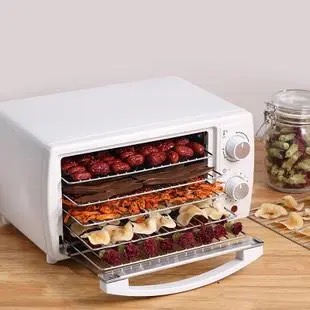
Content Menu
● Understanding Heat Pump Dryers
● Advantages of Heat Pump Dryers
● Comparing Heat Pump Dryers to Traditional Drying Methods
● Applications of Heat Pump Dryers in Food Processing
● Choosing the Right Heat Pump Dryer
● Maintenance Tips for Heat Pump Dryers
● Economic Considerations
● Case Studies
● Conclusion
● FAQ
>> 1. What is a heat pump dryer?
>> 2. How does a heat pump dryer differ from traditional dryers?
>> 3. Can I use a heat pump dryer for all types of food?
>> 4. What maintenance does a heat pump dryer require?
>> 5. Are heat pump dryers environmentally friendly?
In the world of food preservation, drying is a crucial method that helps extend shelf life while retaining flavor and nutrients. Among the various technologies available for drying food, heat pump dryers have gained significant attention. This article will explore the workings of heat pump dryers, their advantages over traditional drying methods, and whether they are the best option for your food drying needs.

Understanding Heat Pump Dryers
Heat pump dryers utilize a unique technology that combines heat exchange and moisture removal. Unlike conventional dryers that rely on direct heat sources, heat pump dryers recycle energy, making them more efficient.
How Heat Pump Dryers Work
1. Heat Exchange: The dryer extracts heat from the surrounding air using a refrigerant.
2. Moisture Removal: The heated air is then circulated through the drying chamber, where it absorbs moisture from the food.
3. Condensation: The moisture-laden air passes through a condenser, where it cools down, and the moisture condenses into water.
4. Recycling Air: The cooled air is reheated and cycled back into the drying chamber.
This process allows for lower drying temperatures and improved energy efficiency compared to traditional methods.
Advantages of Heat Pump Dryers
Heat pump dryers offer several benefits that make them an attractive option for food drying:
- Energy Efficiency: Heat pump dryers consume less energy than conventional dryers because they recycle heat.
- Low Temperature Operation: They operate at lower temperatures, which helps preserve the quality of sensitive foods like fruits and vegetables.
- Versatility: These dryers can handle a wide range of products, from herbs to meats.
- Environmentally Friendly: By using less energy and reducing greenhouse gas emissions, heat pump dryers are a more sustainable option.
- Consistent Results: The controlled environment within a heat pump dryer ensures uniform drying, reducing the risk of spoilage.
Comparing Heat Pump Dryers to Traditional Drying Methods
To understand whether a heat pump dryer is the best option for you, it's essential to compare it with traditional drying methods such as solar drying and conventional electric dryers.
| Feature | Heat Pump Dryer | Solar Dryer | Conventional Electric Dryer |
| Energy Efficiency | High | Variable (depends on sunlight) | Moderate |
| Temperature Control | Precise | Limited | High |
| Drying Time | Longer | Variable | Shorter |
| Initial Cost | Higher | Lower | Moderate |
| Operating Cost | Low | Free (after setup) | Moderate |
Applications of Heat Pump Dryers in Food Processing
Heat pump dryers are widely used in various sectors of food processing:
- Fruit and Vegetable Drying: Ideal for preserving the nutritional value of fruits and vegetables while reducing spoilage.
- Herb Drying: Maintains flavor and potency by using low temperatures during the drying process.
- Meat Drying: Effective for producing jerky and other dried meat products without compromising safety or quality.
- Snack Production: Used in creating healthy snacks by removing moisture from fruits or vegetables while retaining their taste.
- Dairy Products: Heat pump technology can also be employed to dry dairy products like cheese or yogurt powder, ensuring that flavor profiles remain intact while extending shelf life.
- Grain Drying: Farmers can utilize heat pump dryers to reduce moisture content in grains post-harvest, preventing spoilage and enhancing storage life.

Choosing the Right Heat Pump Dryer
When selecting a heat pump dryer, consider the following factors:
- Capacity: Choose a dryer that meets your production needs. Larger capacities are suitable for commercial operations, while smaller units work well for home use.
- Energy Rating: Look for models with high energy efficiency ratings to maximize savings on operating costs.
- Temperature Range: Ensure that the dryer can operate at temperatures suitable for the types of food you plan to dry.
- Ease of Use: Features such as digital controls and automatic settings can enhance usability.
- Brand Reputation: Opt for reputable brands known for their reliability and customer service support. Research customer reviews and product warranties to ensure you make an informed choice.
Maintenance Tips for Heat Pump Dryers
Proper maintenance is essential to ensure optimal performance and longevity of your heat pump dryer:
- Regular Cleaning: Keep filters and condensers clean to maintain airflow and efficiency. A clogged filter can significantly reduce performance.
- Check Seals: Inspect door seals regularly to prevent air leaks that can affect performance. Proper sealing is crucial for maintaining temperature control within the dryer.
- Monitor Performance: Keep an eye on drying times and product quality to identify any potential issues early. If you notice longer drying times or uneven results, it may indicate a need for maintenance or repairs.
- Professional Servicing: Schedule periodic professional servicing to check components like compressors and refrigerants. Regular check-ups can prevent major breakdowns and extend the life of your equipment.
Economic Considerations
Investing in a heat pump dryer may come with a higher initial cost compared to traditional dryers; however, it is essential to consider long-term savings:
- Reduced Energy Bills: The energy efficiency of heat pump dryers translates into lower electricity costs over time, making them cost-effective in the long run.
- Less Food Waste: By providing better control over drying conditions, these dryers help minimize food spoilage, leading to less waste and higher profitability for commercial operations.
- Government Incentives: In some regions, there may be government incentives or rebates available for businesses investing in energy-efficient technologies. Research local programs that could offset initial costs.
Case Studies
To illustrate the effectiveness of heat pump dryers in real-world applications, let's consider two case studies:
1. Fruit Processing Company:
A fruit processing company switched from traditional solar drying methods to a heat pump dryer. They reported a 30% reduction in energy consumption while increasing their production capacity by 20%. The controlled environment allowed them to produce higher-quality dried fruits with better color retention and taste profiles.
2. Herb Farm:
An herb farm adopted heat pump technology to dry their herbs. They found that using lower temperatures preserved volatile oils better than conventional methods. As a result, they were able to market their products at premium prices due to enhanced flavor profiles. Additionally, they experienced reduced labor costs since automated systems required less manual intervention during the drying process.
Conclusion
Heat pump dryers represent an innovative solution for food preservation with numerous advantages over traditional methods. Their energy efficiency, low-temperature operation, versatility, and ability to produce consistent results make them an excellent choice for both commercial producers and home users looking to preserve food quality effectively.
As you consider your options, weigh the benefits against your specific needs to determine if a heat pump dryer is indeed the best choice for you. With proper maintenance and usage practices, these machines can significantly enhance your food preservation processes while being environmentally friendly and economically viable in the long term.

FAQ
1. What is a heat pump dryer?
A heat pump dryer is an appliance that uses a refrigeration cycle to dry food by extracting moisture at low temperatures while recycling energy for efficiency.
2. How does a heat pump dryer differ from traditional dryers?
Heat pump dryers operate at lower temperatures and recycle heat, making them more energy-efficient compared to traditional electric or gas dryers that use direct heating methods.
3. Can I use a heat pump dryer for all types of food?
Yes, heat pump dryers are versatile and can be used for various foods including fruits, vegetables, herbs, meats, snacks, dairy products, and grains.
4. What maintenance does a heat pump dryer require?
Regular maintenance includes cleaning filters and condensers, checking door seals for leaks, monitoring performance to ensure optimal operation, and scheduling professional servicing when necessary.
5. Are heat pump dryers environmentally friendly?
Yes, they are considered environmentally friendly due to their lower energy consumption and reduced greenhouse gas emissions compared to conventional drying methods.












